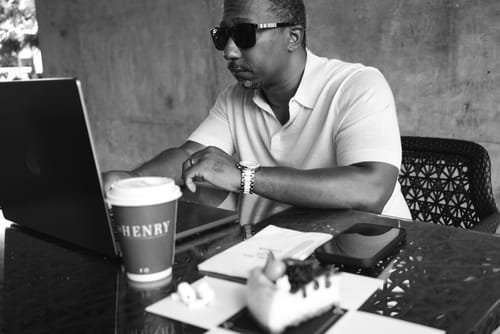The Parable of the Chair Machine
There was once a master chairmaker, an artisan whose hands carried the memory of decades. Each curve he carved, each joint he joined, bore the weight of tradition and the quiet joy of creation. His chairs were not just seats but stories: proof that patience, care, and skill could turn raw wood into something enduring.
The Chair Machine: A black box, mysterious and unassuming, with a single button. Press it, and out came a chair — any shape, any style, perfect to specification.
One day, the village elders gifted him a marvel of technology: the Chair Machine. A black box, mysterious and unassuming, with a single button. Press it, and out came a chair — any shape, any style, perfect to specification. No chisels, no sawdust, no sweat. The elders spoke of progress, of speed, of abundance. "With this machine," they said, "you will make a hundred chairs where once you made only one. Your business will grow. Your wealth will multiply."
But the chairmaker hesitated. To him, the machine was not a gift but a threat. He feared that in pressing the button, he would lose something sacred: the very act of making. Years of mistakes that taught him precision. Years of repetition that taught him patience. Years of labor that taught him joy. The machine, in its perfection, stripped away the struggle that gave the work meaning.
The elders scoffed. "What matters is the chair. The outcome, not the process. Who cares how it is made?" But the chairmaker knew better. A chair was not only a thing to sit on — it was a covenant between maker and material, between hand and history. Without the craft, the chair might still stand, but the chairmaker's soul would not.
And so he stood at a crossroads. He could embrace the machine, produce endlessly, and become rich in coin but poor in craft. Or he could resist it, remain slow, perhaps even fall behind — but keep alive the skills that made him who he was.
In time, he found his answer. He used the machine sparingly, not as a replacement but as a tool. For chairs meant to fill a hall quickly, he pressed the button. But for chairs meant to last generations, he relied on his hands. In this balance, he preserved his craft without denying the future.
The Moral
The parable is not about chairs but about technology. Each new machine — whether loom, engine, or algorithm — offers speed and scale. Yet in that gift lies the risk of forgetting the very skills that once defined us. The danger is not that machines make us useless, but that they tempt us to trade mastery for convenience, and in doing so, we risk becoming caretakers of tools rather than craftsmen of meaning.
True wisdom is not to reject the machine, nor to worship it, but to place it in service of craft — not the other way around.






